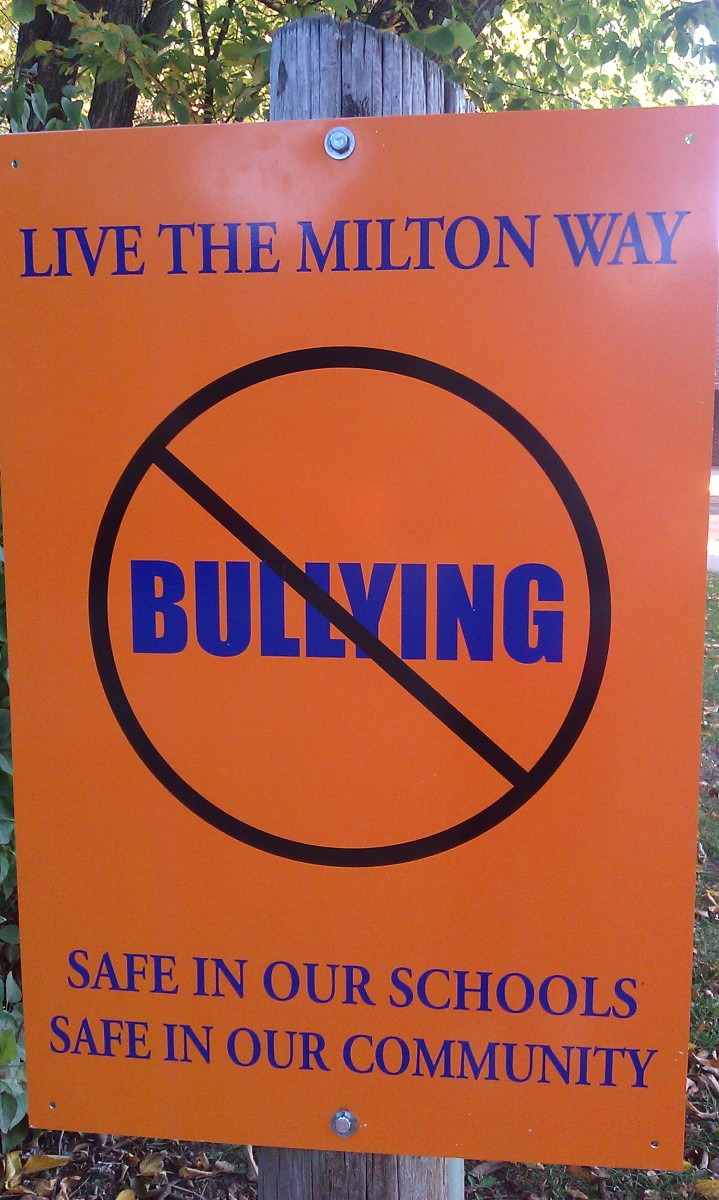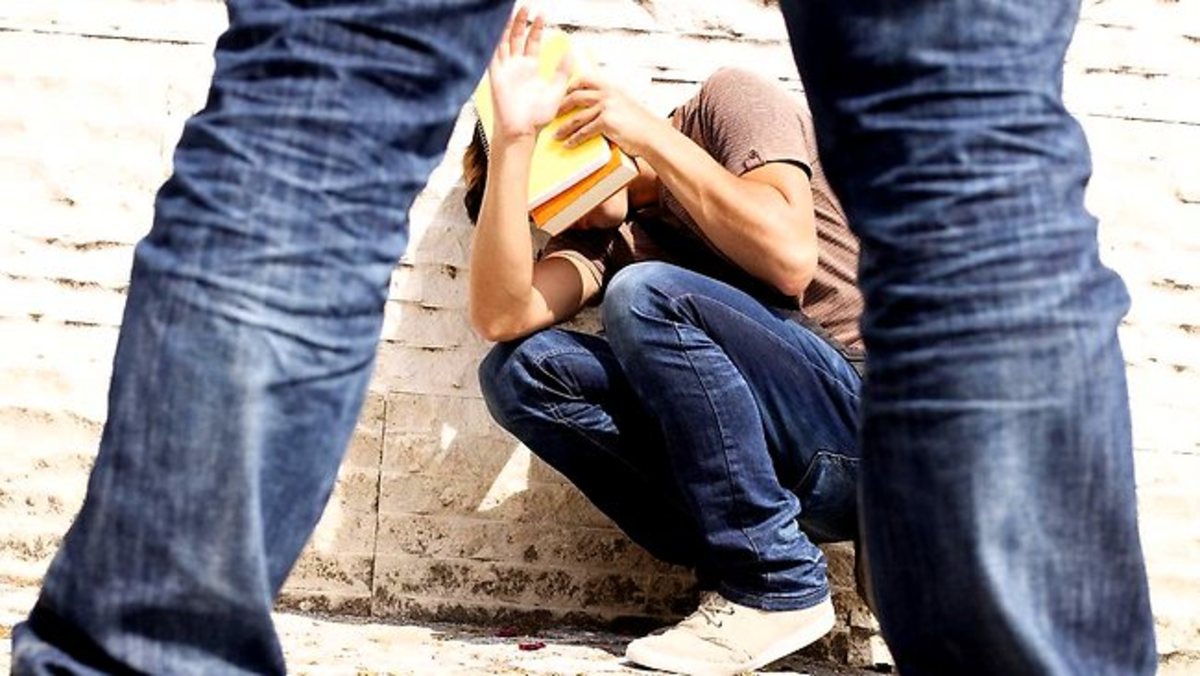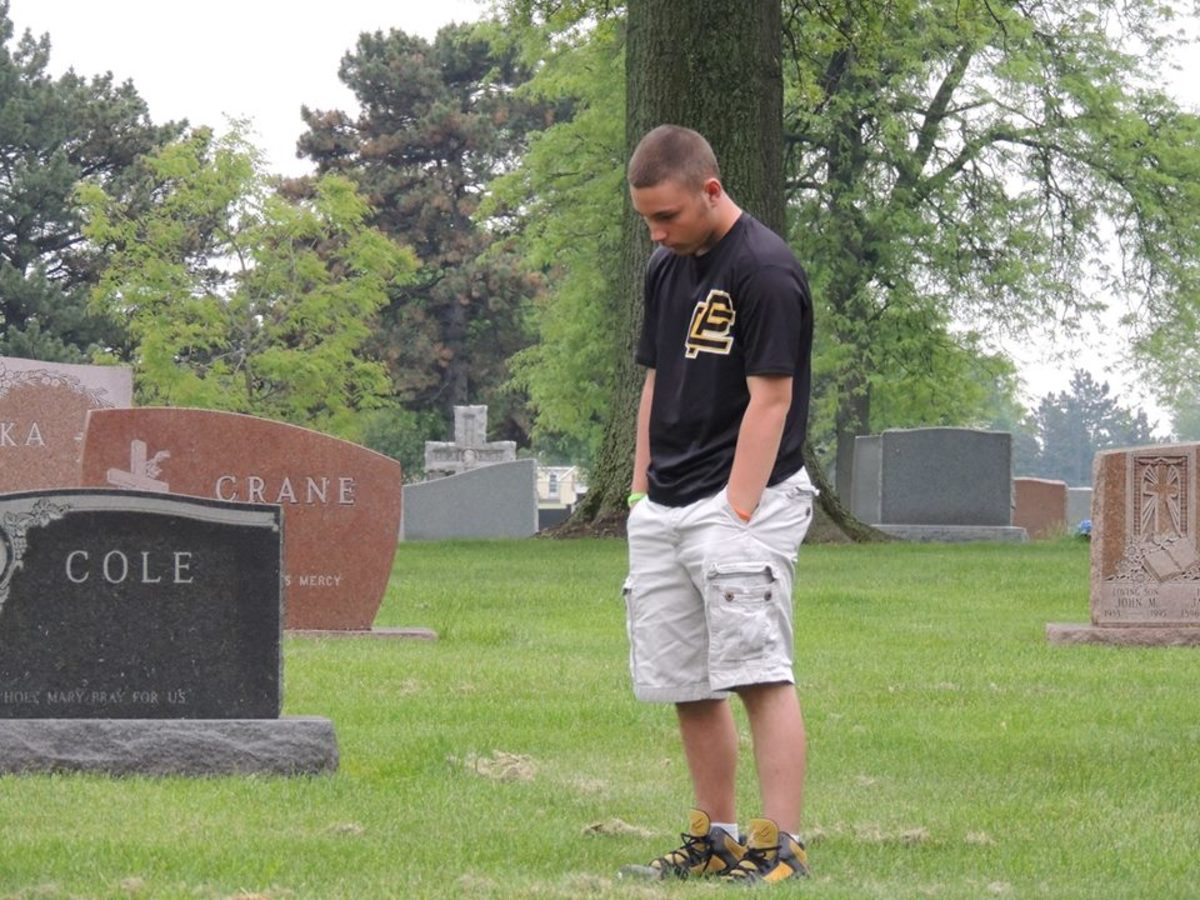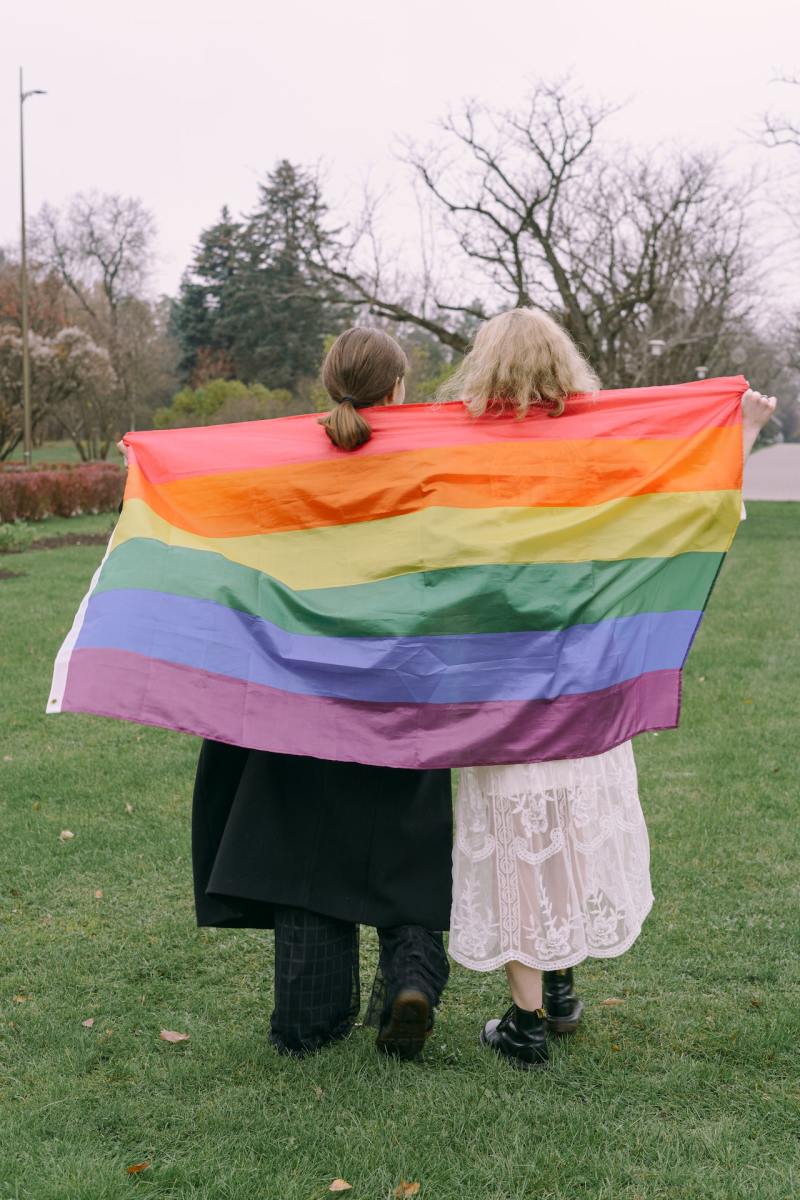Bullying: what is it and what is being done it stop it?
No bullying!
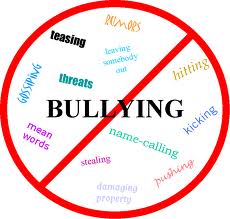
Essencial Questions:
What is bullying?
Bullying is actually a type of abuse. This abuse comes in the form of repeated acts over a span of time. These acts are an attempt, by the bully, to gain and enforce power over a person or group of people; which in turn creates an "imbalance of power".
Facts about Bullying
- Bullying is the most common form of violence in our society; between 15% and 30% of students are bullies or victims.
- A recent report from the American Medical Association on a study of over 15,000 6th-10th graders estimates that approximately 3.7 million youths engage in, and more than 3.2 million are victims of, moderate or serious bullying each year.
- During the 2007–08 school year, 25 percent of public schools reported that bullying occurred among students on a daily or weekly basis
- In 2007, 32 percent of students ages 12–18 reported having been bullied at school during the school year. Twenty-one percent of students said that they had experienced bullying that consisted of being made fun of; 18 percent reported being the subject of rumors; 11 percent said that they were pushed, shoved, tripped, or spit on; 6 percent said they were threatened with harm; 5 percent said they were excluded from activities on purpose; and 4 percent each said that someone tried to make them do things they did not want to do or that their property was destroyed on purpose. (National Center for Education Statistics: Indicators of School Crime and safety 2010).
- Membership in either bully or victim groups is associated with school drop out, poor psychosocial adjustment, criminal activity and other negative long-term consequences.
- Direct, physical bullying increases in elementary school, peaks in middle school and declines in high school. Verbal abuse, on the other hand, remains constant. The U.S. Department of Justice reports that younger students are more likely to be bullied than older students.
- 25% of teachers see nothing
wrong with bullying or put downs and consequently intervene in only 4% of
bullying incidents.(National Association of School Psychologists)
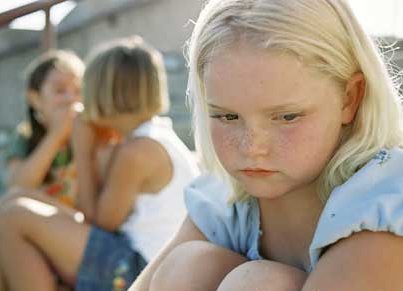
Words associated with bullying and their definitions:
Target: The victim of bullying.
Verbal abuse: A form of abuse that involves language. It is a form of profanity that can include profanity or not.
Physical abuse: The act of using bodily force to harm another purposefully, including, but not limited to; hitting, kicking, shoving, biting, pinching etc.

What does bullying look like?
Who are these 'bullies' we keep hearing about?
- Family factors: Children who observe parents and siblings exhibiting bullying behavior, or who are themselves victims, are likely to develop bullying behaviors. When children receive negative messages or physical punishment at home, they tend to develop negative self-concepts and expectations, and may therefore attack before they are attacked—bullying others gives them a sense of power and importance.
- School factors: Bullying thrives in an environment where students are more likely to receive negative feedback and negative attention than in a positive school climate that fosters respect and sets high standards for interpersonal behavior.
- Peer group factors: Children may interact in a school or neighborhood peer group that advocates, supports, or promotes bullying behavior. Some children may bully peers in an effort to “fit in,” even though they may be uncomfortable with the behavior.
(National Association of School Psychologists)
Why does bullying happen?
Why are children bullied?
Part of the reason that children are targeted stems from them being significantly 'different' from the majority of the population in which they exist. This is why children that exhibit homosexuality, or act outside of gender norms, are minorities, dress differently, are socially inept, are often targeted.
What is being done to combat bullying?
Some schools have a pro-active, (versus re-active) approach to bullying. Check out the video below to see the story of how one mother's choice to allow her son to wear 'girly' clothing and accessories was accepted in his school and the wonderful community that was involved.
How can parents help?
One of the first steps a parent can take to prevent bullying is to make sure that their child has good communication skills and acts appropriately in social situations. Encouraging acceptance of all people and the instilling of morals is also very important to raising a child. Parents should make sure that they have a good relationship with their child and know what's going on in their lives; who their friends and teachers are, what they like to do etc. Its important for parents to be observant of their child's mood, feelings about school, social life as well as how they are faring academically. If this is done signs of bullying can be more obvious. Studies have also shown that children who come from loving caring homes are less likely to tend toward bullying.
Another step that parents can take is to have a discipline system set up at home. But it must be a system in which the parents do not exhibit behavior that encourages negative actions at school.
"A parent who disciplines a child with yelling or hitting is teaching a child to react in that manner with other people. Often a child who exhibits bullying behavior in school has been the target of that behavior in the home. Boys who observe their fathers handling disputes with a physical response or girl who observe their mothers practicing exclusion or manipulation of friends or family members will likely exhibit the same behavior in school."
This is a clear example of 'monkey see, monkey do'. All adults need to be wary that their actions are observed by those younger and more impressionable than them.
(National Education Association)
Obama Urges Victim's to Reach Out
President Obama sends a message to those that have experienced bullying, and gives young people assurance that as long as they reach out to someone for support, it will get better.
Bullying Interviews
Some interviews were done with students in the middle and high school grade-levels. All the students were asked the same questions and their answers were recorded.
Sharod 5th grade Male
1. What is bullying?
Bullying to me is being mean, bad or bossy.
2. Have you ever been bullied?
No, I have never been bullied.
3. Have you ever bullied someone? If so, why?
Yes I have. I did it because I got mad at him and ran into him and made him hurt his self. I am bigger and older than him so I knew he couldn’t hurt me back.
4. Have you seen or heard of or seen anyone being bullied?
Yes I have seen it. My best friend made fun of a boy on our bus and kept bothering him. He also kicked him and starting fighting him.
Da’Nasiah 6th grade Female
1. What is bullying?
Bullying is when group of kids or one person makes fun of or sexually harasses someone.
2. Have you ever been bullied?
No I have never been bullied.
3. Have you ever bullied someone? If so, why?
No I have never bullied anyone, and would never think to do it because I know it’s not right and is mean.
4. Have you seen or heard of or seen anyone being bullied?
I have never seen anyone being bullied.
Terrance 8th grade Male
1. What is bullying?
Bullying is putting someone down mentally, sexually, or physically.
2. Have you ever been bullied?
I have not been bullied.
3. Have you ever bullied someone? If so, why?
Yes I physically and verbally bullied someone because I thought it was funny and I knew they wouldn’t do anything about it.
4. Have you seen or heard of or seen anyone being bullied?
Yes someone got beaten up for their phone.
Tyler 9th grade Male
1. What is bullying?
Bullying is to ridicule or endanger someone physically.
2. Have you ever been bullied?
No I have never been bullied.
3. Have you ever bullied someone? If so, why?
No I have never bullied anyone.
4. Have you seen or heard of or seen anyone being bullied?
Yes. I never did it myself but have witness it on many occasions, mostly fights where older people picking on younger kids.
Ellen on Bullying
After the recent incidents of suicides being brought and made public, a number of celebrities decided to use their voice to reach the public. Ellen, a known and openly gay talk show host, made a public statement on her show to voice her opinion on the situation in hopes o put a stop to bullying.
Bullying Vs. Regular peer interactions
In this video, a group of kids wanted to show the difference between bullying and regular everyday peer interactions. It can be hard to distinguish between the two so this video discusses what separates them. Here they acted out several scenes to show the different forms of bullying.
Disney's Demi Lovato on Bullying
Using Fame to Stop Bullying
Teen Disney star Demi Lovato uses her fame to promote healthy relationships and stop bullying in schools.

